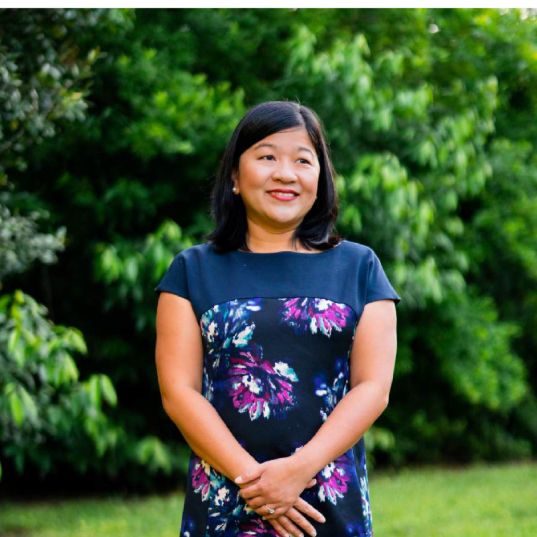Why Local Care Matters for Postpartum Depression
Finding Postpartum Depression support in Orlando can make a meaningful difference when you’re juggling newborn care, sleep deprivation, and fluctuating hormones. Local therapists understand area resources like lactation consultants, mother–baby groups, and pediatric practices that coordinate care for mood changes and bonding concerns. MiResource’s directory lets you quickly filter by insurance, availability, and therapy type to match with clinicians experienced in postpartum issues such as intrusive thoughts or challenges with breastfeeding. Local matches reduce travel stress and help you book appointments that align with feeding schedules and nap windows.
MiResource makes it simple to find culturally responsive care in Orlando, including providers who speak your language, offer partner-inclusive sessions, and respect your family’s values. Use filters to locate evening or weekend openings, in-person options near your neighborhood, or hybrid telehealth for days when leaving home is hard. You can also prioritize evidence-based approaches like CBT, IPT, or perinatal-specialized support that screens for thyroid concerns and monitors medication safety in lactation. With tailored search tools and Orlando-based options, you get faster access, better scheduling fit, and a therapist who understands the realities of postpartum life.
Local Options and Community Programs
Navigating postpartum depression can feel overwhelming, but Orlando offers strong local support. From crisis lines and hospitals to public programs, support groups, and low-cost clinics, there are options for immediate help and ongoing care. Many organizations offer specialized perinatal mental health services, including peer support and therapy tailored to new parents. Use the resources below to find timely, local assistance.
Crisis Support
Public Programs
Nonprofits & Support Groups
Universities & Health Systems
The Advantages of Seeing an Orlando-Based Therapist
Working with an Orlando-based therapist for postpartum depression means care that’s grounded in the city’s rhythms and resources. Local clinicians understand life around Lake Eola, Baldwin Park, College Park, Mills 50, and Lake Nona, including cultural nuances in Spanish- and Creole-speaking communities in Azalea Park and Parramore. They can connect you with nearby support like Orlando Health Winnie Palmer Hospital for Women & Babies, AdventHealth for Women, and the Healthy Start Coalition of Orange County, plus Postpartum Support International meetups. City programs through Orlando Families, Parks and Recreation and Orange County Library System baby-and-me classes provide gentle re-entry into community with your newborn.
In-person sessions are practical here: quick hops via I-4, 408, or 417, easy parking near offices by Ivanhoe Village or Winter Park’s border, and public transit options like LYNX and SunRail stops at Church Street and AdventHealth stations reduce travel stress with a stroller in tow. Therapists familiar with neighborhood schedules can offer times that fit nap windows and work shifts common to hospitality and healthcare near the tourism corridor and Medical City. Being face-to-face helps with nuanced screening, lactation and sleep support referrals, and warm handoffs to local mom groups around Lake Eola or Baldwin Park pavilions. The result is accessible, culturally aware care anchored in Orlando’s neighborhoods, landmarks, and networks.
Holistic Approach to Mental Health in Orlando
Holistic care means caring for your mind, body, and environment together—recognizing that postpartum depression can be eased by support that includes emotional care, healthy routines, and nurturing surroundings. In Orlando, that might look like gentle yoga at Warrior One Yoga in Winter Park or Orlando Power Yoga, guided meditation with the Orlando Insight Meditation Group, and whole-person services at the AdventHealth Center for Health & Wellbeing. Recharging in green spaces like Lake Eola Park, Mead Botanical Garden, Baldwin Park’s trails, or Harry P. Leu Gardens can help restore calm between feedings and naps, while community hubs like the YMCA of Central Florida and the Dr. Phillips Center for the Performing Arts offer movement and uplifting cultural events.
Beyond traditional therapy, Orlando’s neighborhoods—Downtown, College Park, Thornton Park, Mills 50, and Ivanhoe Village—offer accessible classes, parent groups, and wellness workshops that fit real-life schedules. MiResource helps you navigate these options alongside evidence-based postpartum care, matching you with therapists, support groups, doulas, and complementary services that align with your needs and location. Start with us to build a personalized plan that blends clinical support with Orlando’s rich wellness and community resources.
What Postpartum Depression Means
Postpartum depression is a common, treatable mood condition some parents experience after childbirth, causing deep sadness, anxiety, or numbness. It can make everyday tasks in Orlando—like caring for your baby, sleeping, or connecting with loved ones—feel overwhelming, but help is available and you’re not alone.
About the Experience of Postpartum Depression
Postpartum depression is a mood condition that can happen after having a baby, bringing feelings of deep sadness, anxiety, irritability, or numbness. Common signs include trouble sleeping or sleeping too much, changes in appetite, crying often, feeling guilty or overwhelmed, and difficulty bonding with your baby. It can make daily routines in Orlando feel hard, like getting out of bed, keeping up with feedings, chores, work, or social plans. You’re not alone, and with support, these feelings can get better.
How Therapy Makes a Difference
Evidence-based therapies like Cognitive Behavioral Therapy (CBT) and Interpersonal Therapy (IPT) reliably reduce depressive symptoms, anxiety, and guilt while restoring energy, sleep, and day-to-day functioning. Behavioral Activation helps you rebuild routine and pleasure, and mother–infant therapies strengthen bonding and confidence in caregiving. Many parents notice improvements within weeks and sustain gains with relapse-prevention tools tailored to their support system. With compassionate Postpartum Depression therapy in Orlando, you can access proven care that helps you feel like yourself again and enjoy your baby.
Inside the Therapy Process
In Orlando, your first session for postpartum depression focuses on gentle, judgment‑free conversation about your mood, birth experience, supports, and goals, along with a brief screening to guide care. Together, you and your therapist create a personalized plan that may include evidence-based treatments like cognitive behavioral therapy (CBT), interpersonal therapy (IPT), behavioral activation, and, when appropriate, coordination with your prescriber for medication options. Ongoing sessions build skills to manage mood, reduce anxiety, strengthen support systems, and navigate daily routines and parenting demands, with adjustments based on what’s working for you. Collaboration is central—your preferences, pace, and feedback shape each step so you feel understood, supported, and empowered.
Answers to Your Questions About Postpartum Depression
1. How do I know when it’s time to seek help for Postpartum Depression?
If you’re feeling persistently sad, numb, overwhelmed, or unusually irritable most days, or finding it hard to bond with your baby, it may be time to seek support. Warning signs can include constant worry or panic, changes in sleep or appetite beyond typical newborn shifts, lingering guilt or hopelessness, and struggling to get through daily tasks. Therapy may be especially helpful if you’re withdrawing from loved ones or having scary thoughts you can’t shake. You’re not alone—compassionate care is available in Orlando, and reaching out is a strong first step.
2. What if I don’t feel comfortable with my first Postpartum Depression therapist in Orlando?
It’s completely normal if your first Postpartum Depression therapist in Orlando doesn’t feel like the right fit—many people try a few before finding someone who clicks. The therapeutic relationship is key to progress, so feeling understood and safe truly matters. Don’t feel guilty about switching; advocating for yourself is part of healing. MiResource makes it easy to compare Orlando therapists, read profiles, and find someone who better matches your needs.
3. How do I explain my Postpartum Depression to friends or family?
It’s your choice whether to share—only open up if and when it feels right. Start with simple language like, “I’m experiencing postpartum depression, which is a common, treatable condition after birth,” and let them know what support would help, such as checking in or helping with meals. Choose a private, low-stress moment with someone you trust, and set clear boundaries: “I’m not ready for advice or detailed questions—listening is most helpful.” If you feel overwhelmed, pause the conversation, change the subject, or say you’ll talk more another time; your comfort comes first in Orlando or anywhere.
4. Who can diagnose Postpartum Depression in Orlando?
In Orlando, psychiatrists, psychologists, licensed therapists, and sometimes primary care doctors can diagnose postpartum depression through a clinical evaluation that includes discussing your symptoms, timing after birth, medical history, and using validated screening tools. This process helps distinguish postpartum depression from normal “baby blues” and other conditions so you can get the right care. MiResource lists only qualified, licensed providers in Orlando who can give an accurate diagnosis and guide appropriate treatment.
5. What causes Postpartum Depression?
Postpartum Depression has many possible causes that can interact, including biological changes (like hormone shifts and sleep deprivation), psychological factors (such as prior mood concerns or anxiety), and social or environmental stressors. It looks different for each person, and things like birth experiences, limited support, financial strain, or community pressures in Orlando can add to the load. This isn’t a personal failing or something you caused. If you’re worried about how you’re feeling, reaching out for support in Orlando can help you feel heard and find care that fits your needs.
6. What are the biggest misconceptions about Postpartum Depression?
Many people think Postpartum Depression is just the “baby blues” or a phase you can push through, but it’s a real, treatable health condition that can affect any new parent. It doesn’t mean you’re weak, ungrateful, or a bad parent—PPD is driven by biological, emotional, and social factors beyond your control. Another myth is that it only happens right after birth; symptoms can start during pregnancy or develop months postpartum. If you’re in Orlando and struggling, reaching out for professional support is a strong, positive step—help is available, and you don’t have to go through this alone.













